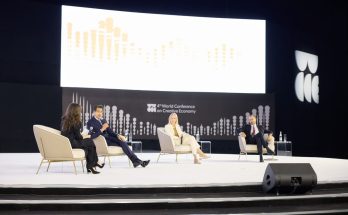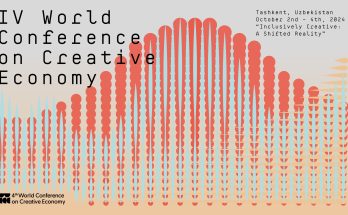‘Rising Intolerance’ is the much-trumpeted buzzword these days. One can scarcely switch on a private TV channel and not find it engaged in vigorous and passionate discussions, debates and arguments on this contentious issue. Several pages of most newspapers, magazines and journals are splattered with pictures and accounts of protests and demonstrations as well as learned writings and perceptive articles by protagonists of different streams of thought. Needless to add, the subject is of vital and critical importance for the stability, peace and development of our country.
The issue is of rather recent origin when a number of intellectuals, writers and artistes from different fields raised their voices in protest against the “rising wave of intolerance” in society. This, in their view, is characterized by the killings of Prof M.M. Kalburgi, a progressive liberal who was shot dead in August, 2015 in Karnataka; of Govind Pansare, a left-wing politician who was killed in Feb, 2015 in Mumbai; and Narendra Dabholkar, a rationalist who was killed in Aug, 2013 in Mumbai. The last straw on the camel’s back was the lynching to death of an elderly Muslim villager Mohd Akhlaq in Dadri, UP by some misguided radical Hindu activists allegedly because he had consumed beef.
It started with Nayantara Sahgal, the well- known author speaking out against the suppression of free speech and surrendering the Sahitya Akademi Award received by her in 1986. This started as a trickle but has snowballed into a veritable flood with a large number of Sahitya Akademi awardees and winners of national honours giving up their Awards as a protest against the recent so called “growing intolerance”.
Several other cultural activists and patrons of art, literature and culture have, however, spoken out vociferously against the practice of returning awards and honours bestowed on artistes by the country and independent cultural bodies.
Political slanging match: Manufactures protests?
Political parties have sought to derive political mileage out of these events. Congress led a march from the Parliament to Rashtrapati Bhavan and petitioned the President to intervene in the matter. President Pranab Mukherjee himself has spoken several times in recent days about the importance of tolerance for our country and need to promote and preserve diversity and peaceful-coexistence. RBI Governor Raghuram Rajan has spoken out about the critical relevance of this issue in promoting economic growth. International credit rating agency Moody’s has stepped into the fray, saying that the international brand and image of India and PM Modi is in danger of losing credibility unless the right wing fringe elements are reined in.
Finance Minister Jaitley has termed all these protests as “manufactured” and “politically motivated”. He has stated that PM Modi is the biggest victim of intolerance by his political detractors for the 2002 riots in which he has been exonerated by all courts, including the Supreme Court. Several supporters of the government have charged that intellectuals and activists who are protesting now did not say or do anything when much more serious incidents like the killing of Sikhs in 1984 and the exodus of Kashmiri pundits from Kashmir Valley in the 1990s took place. The protestors owe allegiance to the Congress party, they maintain, and are engaging in these protests to further its political agenda.
The protestors claim that PM Modi has not spoken out clearly, strongly and unambiguously in favor of preserving pluralism and diversity in India. This, they maintain, has encouraged the small fringe groups to indulge in their intemperate pronouncements and activities with impunity.
Senior ministers like Home Minister Rajnath Singh, Arun Jaitley and others have, however, made strong and explicit statements regularly for promoting and preserving the syncretic cultural ethos and fabric of India. Prime Minister himself has spoken clearly and with all authority and conviction at his command about his total faith in and commitment to religious harmony and peaceful co-existence. In his latest statement in parliament, he spoke unambiguously about his commitment to what he called “India First religion.” He has articulated his firm belief in India’s diversity during his speeches and address from the Red Fort on 15th August, 2014; at the annual UNGA session in New York, and during his meetings with religious and spiritual leaders, and on innumerable other occasions. Several supporters of the government claim that the opposition has brought this issue to a crescendo as they want to derive political mileage from it.
These developments raise several pertinent questions. Firstly, it is important to ensure that we do not confuse issues related to normal law and order problems, crime and other violent incidents with issues of “intolerance,” communal or religious. From this perspective it would need to be examined whether what is happening today is something unusual or abnormal or incidents of similar nature have occurred in the past as well.
Zero tolerance: Who is responsible?
Votaries of the government would have us believe that incidents much more serious and on a much larger scale have occurred in the past. It is hence, they claim, neither fair nor appropriate to hold the Central government responsible for these incidents. They maintain that since these are pure law and order issues, the state governments should be held responsible for not taking strict action on time to deal with such incidents. At the same time, it is equally important that the ruling parties take strong and strict action against those who tend to spread hatred and strife amongst different communities by making incendiary statements. Governments in the States and at the Centre should clearly articulate their policy of zero tolerance against all inflammatory speeches and actions. Since governments, both in the states and the Centre have the political and executive authority, the first responsibility to create a climate of peace and harmony rests with them. They will of course not be able to achieve this unless they get full support and cooperation of the opposition parties also.
Need for Dialogue
It is mandatory to embark on an honest and constructive dialogue between the government and opposition parties. The opposition should stop trying to score political points to derive political benefits by opposing the government on each and every issue, irrespective of whether it is beneficial to the country or not. The opposition has blocked sensible and beneficial legislation proposed by the government just because it does not wish to give any advantage to the government. The opposition charges that since the current ruling party behaved in the same obstructionist manner when it was in opposition, the opposition will also be non-cooperative and put obstacles in the path of the government. This is a short-sighted policy. The opposition should rise above narrow, parochial party interests and look at the national interest. In this manner, it will be able to create a positive impact on the consciousness of ordinary citizens and improve its standing, which will be reflected in future polls. Otherwise they will continue to be marginalized as they are at the moment. They need to behave like a constructive opposition.
Promoting economic prosperity
The second strategy for dealing with rising incidents of violence and lawlessness is to promote economic prosperity. For this peace is a sine-qua-non. This is critical for the country. Many innovative and positive steps have been taken by the government. Several earlier schemes and plans have been extended with suitable changes. It is incumbent upon both the government and the opposition to work together to provide economic growth and jobs to our people. Citizens will develop an economic stake in the security and stability of the system and ensure that disruptive activities like killings, violence, hate speeches and communal and religious clashes do not occur or are kept to the minimum. As PM Modi has mentioned, poverty is the biggest enemy of both Hindus and Muslims. Both the communities should hence work together to fight poverty rather than fighting each other.
Government will have to ensure that benefits of economic growth are transmitted to the most dispossessed and deprived segments of the society, both in urban as well as rural areas so that all citizens are able to live a life of dignity and well-being.
The Way Ahead
In addition to dialogue and promotion of economic well-being and prosperity, our law enforcement machinery and police needs to be suitably trained and sensitized so as to pro-actively enforce peace and make sure that if violence and clashes do occur, they are swiftly controlled and exemplary punishment meted out to perpetrators of the crimes.
It is possible to control “intolerance” in society and channelize the energy of the people in a productive and fruitful direction. For this, the political parties, civil society, intellectuals and religious leaders will need to rise above their immediate parochial interests and work in unity for the progress and security of the country.
 (Ashok Sajjanhar is Secretary, National Foundation for Communal Harmony and a former ambassador of India. This article has been written exclusively for India Writes Network)
(Ashok Sajjanhar is Secretary, National Foundation for Communal Harmony and a former ambassador of India. This article has been written exclusively for India Writes Network)
Author Profile
- India Writes Network (www.indiawrites.org) is an emerging think tank and a media-publishing company focused on international affairs & the India Story. Centre for Global India Insights is the research arm of India Writes Network. To subscribe to India and the World, write to editor@indiawrites.org. A venture of TGII Media Private Limited, a leading media, publishing and consultancy company, IWN has carved a niche for balanced and exhaustive reporting and analysis of international affairs. Eminent personalities, politicians, diplomats, authors, strategy gurus and news-makers have contributed to India Writes Network, as also “India and the World,” a magazine focused on global affairs.
Latest entries
 DiplomacyJanuary 5, 2026India walks diplomatic tightrope over US operation in Venezuela
DiplomacyJanuary 5, 2026India walks diplomatic tightrope over US operation in Venezuela India and the WorldNovember 26, 2025G20@20: Africa’s Moment – The Once and Future World Order
India and the WorldNovember 26, 2025G20@20: Africa’s Moment – The Once and Future World Order DiplomacyOctober 4, 2025UNGA Resolution 2758 Must Not Be Distorted, One-China Principle Brooks No Challenge
DiplomacyOctober 4, 2025UNGA Resolution 2758 Must Not Be Distorted, One-China Principle Brooks No Challenge India and the WorldJuly 26, 2025MPs, diplomats laud Operation Sindoor, call for national unity to combat Pakistan-sponsored terror
India and the WorldJuly 26, 2025MPs, diplomats laud Operation Sindoor, call for national unity to combat Pakistan-sponsored terror










